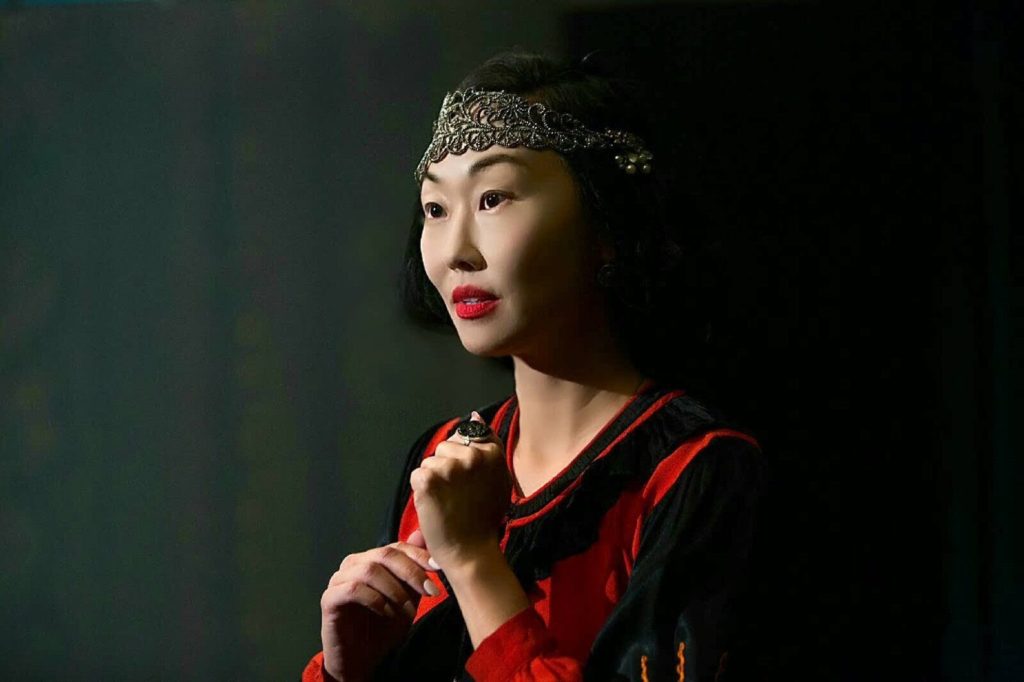Combatting Asian-American Misrepresentation in Hollywood

Image Courtesy of Randy Shropshire
By Katie Van Lew
Glitz, glamour, and the perpetuation of stereotypical roles for minority groups: this is Hollywood. From an outside perspective, Hollywood is a gold mine; it’s the land of opportunity for aspiring actors and actresses, or virtually anyone with an iPhone and a TikTok account.
Although there is room to praise and applaud Hollywood producers for cultivating television shows and films with inclusive casts, this is simply not enough. Asian representation, in the form of coercing actors and actresses to play out Asian stereotypes, is a calculated and manipulative ploy by Hollywood producers to get a gag laugh from the audience. This is a wildly irresponsible and trite card that too frequently producers deal to their talented Asian American actors and actresses.
Candace Kita, an Asian American actress, credited for her role in Masked Rider, and other appearances in popular television shows such as “Always Sunny in Philadelphia” and “Two and a Half Men” and now managing editor of VIVA Glam Magazine, is speaking out against Hollywood’s proclivity to purposely cast Asian actors and actresses, only for directors to demand that these roles match a grotesquely false representation of Asian people.
Growing up, Kita expressed her disappointment in Asian representation in film, from the over exaggerated accents, garments, and way in which Asian actors are expected to conform to prejudice as a medium to be swallowed and regurgitated by the masses. People eat this up, and quite literally, use the ridiculed Asian representation in the media to fuel the fire to an absurdly erroneous caricature of Asian people created by Hollywood’s elite white men. How could people dare to question Asian hate when it is crudely presented in the media.
“Breakfast at Tiffany’s” was one of my favorite movies, [but] I saw Mickey Rooney [as] Mr. Yunioshi,” said Kita in an interview with IndieWire. “I remember thinking at the time, when I was a kid, “This is not me. I don’t know anybody that’s this way. I don’t have huge Coke-bottle glasses. I don’t have huge teeth. I don’t have super squinty eyes. I don’t talk that way. Nobody in my family speaks that way.”
Because of Hollywood’s cutthroat nature, it is already hard enough to land jobs. Some actors do not have the luxury of denying roles, even if it means the actor has to succumb to a blatantly false caricature of their ethnic background. As an actress of over 30 years experience in Hollywood’s misrepresentation of Asian Americans, Kita has played roles that align with Asian American women stereotypes such as a masseuse, manicurist, and prostitute. These roles place a heavy sexual connotation on young Asian American actresses, who are then expected to play out roles with promiscuous undertones, and in turn, paint a false narrative for the sake of laughs.
There is something deeply flawed in claiming inclusivity in the film industry, yet allowing prejudice to fester in their projects. The over-exaggerated and degrading caricature represented in media of Asian Americans has never been justified, and has never served Asian representation, but rather fueled ridicule and hate towards Asians.
Even the highly acclaimed Steven Yeun, who won an Oscar for Best Actor in his scintillating performance in Minari (2021), has faced the degradation that Hollywood enforces on its Asian American actors. Yeun has come a long way in his fight for appropriate Asian representation in media.
In one of his first roles, Yeun played Glenn, a series regular on The Walking Dead.
“I look at things like Glenn, and I’m still grateful that I actually got a chance to make him human, because if we’re gonna be honest,” said Yeun in an interview with IndieWire. “In the beginning, the first couple episodes, Glenn was human, but he was also very expected,” Yeun said. “There’s a reason why the first costume designer had me wear Short Round clothes, you know? That’s not maybe on purpose because she was like, ‘I want you to be Short Round.’ But she was relying on the systems that she knew, and the images and ideas that she knew of what Asian people are to her.”
Asian media representation is not about enforcing archaic stereotypes on these characters; this false narrative does more damage than good — to the actors involved, and the consumer of said media. Just because the cast is diverse, does not constitute an ethnically inclusive film. Filmmakers must be educated, and respectful in terms of culture and identity. There is no room in Hollywood for backhanded scripts that make Asian American actors the punchline of ignorance.
“Decent roles. There needs to be roles out there for Asian people. Not a prostitute, not a masseuse,” said Candance Kita. “You need to write roles about real people in America today. You have the power to create characters who are real and compelling. I think it will be great if the studios do away with the stereotypes. They don’t even realize sometimes that there’s no humor in making fun of another person based solely on their race. When there’s a time when there’s no need for this type of interview, great. That’s when I think there’s going to be success.”
In the year 2021, anti-Asian discourse needs to be addressed, starting with the people who profit off Asian misrepresentation in the media. Filmmakers who continue to include false narratives need to be held accountable, and such portrayals should be admonished, not celebrated. It is time to challenge the industry that propels Anti-Asian sentiment.







